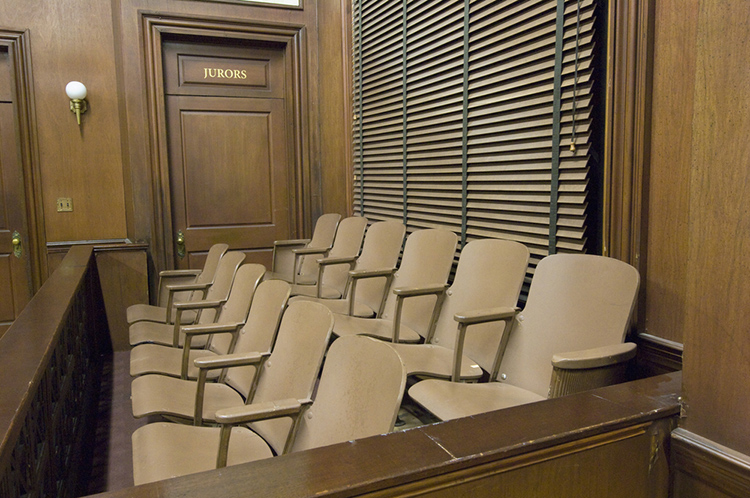Bias in jury selection is back before Supreme Court; is 'OJ strategy' a Batson violation?

sirtravelalot / Shutterstock.com
Lawyers for two death-row inmates are asking the U.S. Supreme Court to decide questions of racial bias in jury selection.
Last Friday, the court accepted the case of Curtis Flowers, a black Mississippi inmate who has been tried six times for a 1996 quadruple murder at a furniture store, according to the Associated Press, the Clarion Ledger and APM Reports. The prosecutor in Flowers’ six trials used the “overwhelming majority” of his peremptory strikes to exclude potential black jurors, according to the Clarion Ledger.
In a second case, lawyers for a black death-row inmate in California contend prosecutors used a question about O.J. Simpson’s murder trial as a tool to exclude blacks from juries, the San Francisco Chronicle reports. The newspaper dubs the question the “O.J. strategy.” They are planning to file a cert petition.
The prosecutor in Flowers’ six trials, Montgomery County District Attorney Doug Evans, “relentlessly removed as many qualified African-American jurors as he could,” the cert petition alleges. “He struck all 10 African-Americans who came up for consideration during the first two trials, and he used all 26 of his allotted strikes against African-Americans at the third and fourth trials.”
Evans was twice found to have violated the ban on racial bias in jury selection established by Batson v. Kentucky, according to the cert petition. The first time occurred in Flowers’ second trial, when the trial judge disallowed one strike based on a finding it was racially motivated. The Mississippi Supreme Court also found evidence of racial bias in jury selection during Evans’ third trial.
No physical or forensic evidence connected Flowers to the crime, the cert petition says. In addition, all three jailhouse informants who testified against Flowers have recanted, according to the Clarion Ledger story. One of them recanted to American Public Media in its In the Dark podcast.
Flowers’ convictions were overturned three times, twice for prosecutorial misconduct unrelated to jury selection, according to the cert petition. Two other trials ended in hung juries.
In the sixth trial, Evans accepted the first qualified black juror and struck five others. The Mississippi Supreme Court affirmed the conviction, but the U.S. Supreme Court told court to reconsider its decision based on Foster v. Chatman, a 2016 Supreme Court decision that rejected Georgia prosecutors’ race-neutral explanations for eliminating black jurors.
On remand, the Mississippi Supreme Court affirmed the conviction.
Lawyers for Flowers had asked the Supreme Court to decide whether a prosecutor’s past adjudicated history of racial discrimination in jury selection should be considered in the latest case.
The Supreme Court, however, granted cert to decide a different question: whether the Mississippi Supreme Court erred in how it applied Batson v. Kentucky, SCOTUSblog reports.
Lawyers for the California inmate, Floyd Daniel Smith, say prosecutors excluded all black jurors over the course of two consecutive trials, including Smith’s trial.
Prosecutors asked potential jurors in Smith’s trial whether they were upset about Simpson’s 1995 acquittal. Prosecutors eliminated all four black jurors who said they weren’t upset but allowed others who weren’t black and also said they weren’t upset to be seated as jurors, according to the San Francisco Chronicle coverage.
A lawyer for Smith successfully sought a time extension to file a cert petition.



